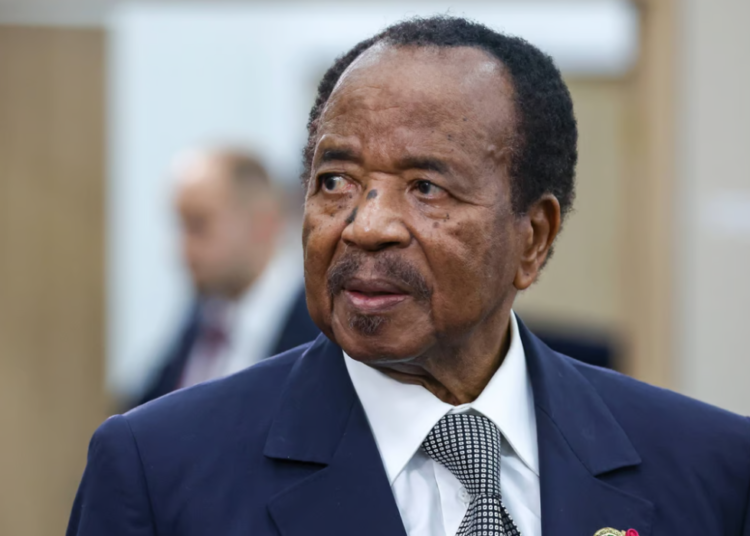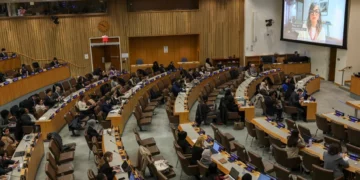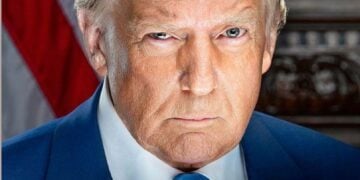Africa perhaps has the oldest legion of political leaders in the world, who are not monarchs, with the unenviable record of longevity in power bothering on manipulation of democratic processes and unconstitutional tenure elongation.
Cameroon’s newly re-elected President Paul Biya, 92, leads other African leaders in parading this uncharitable credential not just as the old brigade but the longest serving leaders of their respective countries.
Just few days ago, Biya was declared winner in an election that smacks of nothing but fraud and manipulation of results to win his eighth term in office having come to power in 1982 after the country’s first indigenous President Ahmadu Ahidjo.
His opponent in the October election, Issa Tchiroma Bakary has cried foul over the outcome triggering pockets of protests in parts of the country, leading to deaths and destruction of property. Meanwhile Biya is billed to commence his eighth consecutive tenure in office, a situation that has allegedly stunted the democratic process and stultified the political development of the Central African nation.
Biya was born on February 13, 1933 and he has been the President of Cameroon since November 6, 1982, making him the world’s oldest serving president and the longest-ruling non-royal national leader.
Arthur Peter Mutharika of Malawi, 85, was recently elected as the seventh President of Malawi, after serving as the fifth President from 2014 to 2020. Mutharika was born on 18 July 1940 and he has been a member of the Democratic Progressive Party (DPP) and the younger brother of the third president, Bingu wa Mutharika.
Another President of the old guard is Alassane Ouattara ,83, of Cote D’ Ivoire , who just secured his fourth term in office after coming to power in 2010. Ouattara was born on January 1, 1942 and he came to power after a tumultuous conflict with his then political rival Laurent Gbagbo after a disputed presidential election. Ouattara has been President since then navigating his country through periods of political instability and economic recovery. However, he has breached the constitutional provisions of two terms of office by allegedly manipulating the constitution to secure for himself a third and a fourth term outside the originally guaranteed second term of five years each.
Teodoro Obiang Nguema Mbasogo of Equatorial Guinea, 83 is another old and long serving president of the tiny African country and has been President of Equatorial Guinea since 1979, making him Africa’s longest-serving president.
Born on June 5, 1942, Teodoro Obiang, emerged as a political colossus to rule the oil-rich country, with unprecedented dominance. Although Obiang is reputed to have recorded some achievements, he has however, stifled opposition forces making multiparty democracy a distant possibility.
Although opposition parties were legalized in 1992, the legislature remains dominated by Obiang’s party and there is no substantive opposition to executive decisions. There have never been more than eight opposition deputies in the lower house, while Obiang’s party has held every seat in the Senate since its inception in 2013.
Emmerson Mnangagwa of Zimbabwe, 82, follows suit in the count of the old brigade: Born on September 15, 1942, Emmerson Mnangagwa has been President of Zimbabwe since 2017, facing challenges such as economic mismanagement and human rights concerns.
He is a member of ZANU–PF and a longtime ally of former president Robert Mugabe, he held a series of cabinet portfolios and he was Mugabe’s first-vice president from 2014 until 2017, when he was dismissed before coming to power in a coup d’état. He secured his first full term as president in the disputed 2018 general election. Mnangagwa was re-elected in the 2023 Zimbabwean general election with 52.6% of the vote. It is hoped that he will not infest Zimbabwe with the bugbear of tenure elongation after serving out his constitutionally allowed terms.
Yoweri Museveni of Uganda, 81, is very popular in Africa, yet has not divested himself from the sit-tight syndrome that has become the bane of democracy in Africa. Born on September 15, 1944, Museveni has been President of Uganda since 1986. Although Museveni has led his country through progress and political challenges, he has failed to nurture genuine democracy in the East African country, leading to doubts as to when his tenure will end.
Denis Sassou Nguesso of the Republic of Congo, 81, is perhaps another democratic dictator that has been President of the Republic of Congo since 1979, with a brief interruption, focusing on maintaining national stability.
Born on November 23, 1943, Denis Sassou Nguesso, a former military officer became president of the Republic of the Congo in 1997. He served a previous term as president from 1979 to 1992. During his first period as president, he headed the Congolese Party of Labour for 12 years. He has remained the only president the Congolese people have known in a generation and this is outside the tenets of democracy
Abdelmadjid Tebboune of Algeria, 79, is in the old brigade. The veteran politician was born on November 17, 1945, and he has been President of Algeria since 2019, facing pressure to implement democratic reforms and diversify the economy.
Tebboune took over the power from former president Abdelaziz Bouteflika and former acting head of state Abdelkader Bensalah after a difficult transition, following years of p[political crisis in the North African country.
Ismail Omar Guelleh of Djibouti, 77, has been President since 1999, making him one of the longest-serving leaders on the continent. Born on November 27, 1946, Guelleh was first elected as President in 1999 as the handpicked successor to his uncle, Hassan Gouled Aptidon, who had ruled Djibouti since independence in 1977. Guelleh was re-elected in 2005, 2011, and 2016 and in 2021 in elections largely boycotted by the opposition amid complaints over massive irregularities.
Bola Tinubu, 73, became Nigeria’s 16th president in 2023. Born on March 29, 1952, Bola Tinubu is widely known for his strategic coalition-building and significant force in Nigerian politics. He is preparing grounds to seek reelection in 2027 as the odds appear to be in his favour as opposition party members are defecting to join Tinubu’s ruling All Progressives Congress (APC).





